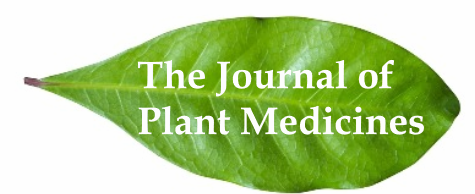Can Antioxidants Help Prevent Skin Cancer?
Research has confirmed that skin cancer is related directly to oxidative stress – and other research shows antioxidants reduce oxidative stress.
Clinical research with cancer patients
The research comes from the Brussels’ Central Hospital, University of Charleroi, and the Hospital Vesale Experimental Medicine Laboratory at Free University of Brussels. The researchers tested 36 patients with head and neck squamous cell carcinomas – one of the most lethal forms of skin cancer. The researchers collected the tumor tissues of the 36 patients along with close-by tissue without tumors.
The researchers then conducted an in-depth analysis of the tissues and tested them using capillary electrophoresis – testing that separates and breaks down tissues into their smaller components. The researchers also conducted oxidation testing and specifically determined the ratios between oxidized glutathione and reduced glutathione.
The ratio of oxidized glutathione to reduced glutathione in the tissues relates directly to the amount of oxidative stress in the tissues, as well as indicates the level of antioxidant activity. This is because glutathione is the leading scavenger of oxidation within the body.
The researchers found that the tumor tissues showed significantly higher variation in the glutathione GSH part of the ratio. This indicates that the free scavenging abilities of glutathione are reduced within skin cancer tissue.
Nine out of ten cancers on the head and neck are squamous cell carcinomas. About half of those with this cancer will die within five years.
The Brussels research confirms findings from the University of Oslo in Norway. In this study, the researchers compared 78 patients with head and neck squamous cell carcinoma together with 100 healthy people.
This time the researchers tested the tissues and blood of all the participants for levels of oxidative stress related to not only glutathione, but also hydroperoxides, gamma-glutamyl transpeptidase, prostagladin and oxidized/total ascorbic acid levels.
Antioxidant levels tested
The researchers also tested for levels of antioxidants present in all the subjects – including total antioxidant capacity, glutathione redox potential, total glutathione levels and total cysteine levels.
They also tested all the subjects for dietary antioxidant levels – including six different carotenoids (carrots and tomatoes are high in carotenoids), four tocopherols (seeds, grains and oils are high in tocopherols, and ascorbic acid (fruits are high in ascorbic acid).
The researchers found that the patients with squamous cell carcinoma all had higher levels of oxidative stress biomarkers in their blood and tissues. The levels of total hydroperoxides were significantly higher in the skin cancer patients – indicating specifically that their bodies were under oxidative stress.
The researchers also found that these oxidative stress markers went up significantly when the cancer patients underwent radiation treatment.

Learn the benefits of the sun and how to help prevent skin cancer while supporting this ad-free website.
The researchers also found that the skin cancer patients lower levels of the dietary antioxidants within their bloodstream as compared with the healthy control subjects. They also found that the levels of antioxidants fell dramatically as the patients were subjected to radiation treatment.
The researchers wrote in their conclusion:
“Biomarkers of antioxidants and oxidative stress are unfavorable in head and neck squamous cell carcinoma patients compared to healthy controls, and radiotherapy affects many of these biomarkers. Increasing levels of antioxidant biomarkers before radiotherapy and increasing oxidative stress during radiotherapy may improve survival indicating that different factors/mechanisms may be important for survival before and during radiotherapy in head and neck squamous cell carcinoma patients. Thus, the therapeutic potential of optimizing antioxidant status and oxidative stress should be explored further in these patients.”
Okay, we get that: Antioxidants can help improve survival rates among patients with skin cancer, and help patients deal with radiation treatment. But how about preventing cancer altogether by eating a healthy diet with lots of antioxidants, and reducing those lifestyle habits – such as smoking and alcohol consumption – that have been specifically linked with producing higher levels of oxidative stress in the body?
This is consistent with the finding that melanoma rates continue to rise even with increased sunscreen use.
REFERENCES:
Dequanter D, Van de Velde M, Nuyens V, Nagy N, Van Antwerpen P, Vanhamme L, Zouaoui Boudjeltia K, Vanhaeverbeek M, Brohée D, Lothaire P. Assessment of oxidative stress in tumors and histologically normal mucosa from patients with head and neck squamous cell carcinoma: a preliminary study. Eur J Cancer Prev. 2013 Mar 12.
Sakhi AK, Russnes KM, Thoresen M, Bastani NE, Karlsen A, Smeland S, Blomhoff R. Pre-radiotherapy plasma carotenoids and markers of oxidative stress are associated with survival in head and neck squamous cell carcinoma patients: a prospective study. BMC Cancer. 2009 Dec 21;9:458. doi: 10.1186/1471-2407-9-458.






























